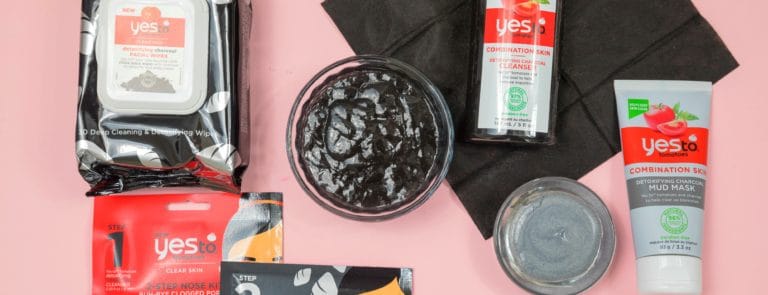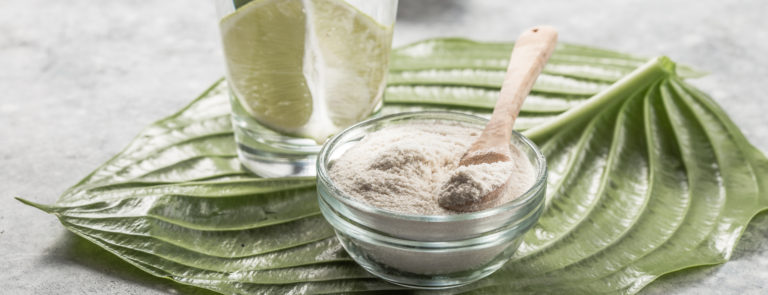20% off £35
Aloe vera: Benefits, uses, dosage & side-effects

Find out all about aloe vera, including what it does, its benefits, and how much you might need.
Skip to:
What is aloe vera?
Aloe vera is a plant used as a traditional medicine for centuries. In fact, stone carvings show it was popular in ancient Egypt.1
It’s still widely used in cosmetics, skincare, dietary supplements, and herbal medicine.
The two parts of the aloe vera plant used herbally are:2
- the clear gel found inside the leaves
- the yellow substance called latex, is found just under the plant’s skin
Aloe vera is available as tablets, capsules, gels, and ointments. You can also sometimes find it in health drinks, as an ingredient in cosmetic products and in hand sanitisers.
Eating aloe vera
Yes – the firm, clear gel inside aloe vera leaves is edible.
Be careful if eating aloe vera, though.
The yellow latex layer surrounding the gel (underneath the tough green skin of the leaves) acts as a powerful laxative and can cause cramping and other gastrointestinal symptoms if ingested.3
If you’re eating aloe vera straight from a plant, make sure it’s an edible variety of aloe vera.
Aloe vera barbadensis Miller is the most common variety considered edible. Avoid the aloe vera var. Chinensis, which isn’t edible.4
There are some benefits of eating aloe vera, too, from aiding digestion, helping to keep your teeth clean and providing your body with essential nutrients it needs.
But, generally, these benefits have yet to be studied in depth.4
Summary
- Aloe vera is made up of clear, firm gel, which is surrounded by latex and tough green leaves
- The Aloe vera barbadensis Miller plant is edible – but avoid the latex
9 aloe vera benefits
Despite its long-term traditional use, few robust clinical studies have looked at aloe vera.
But so far, evidence suggests it may have a role to play in the following areas:
- Aloe vera for psoriasis
Some people with this skin condition – characterised by inflamed, itchy, scaly patches, which can sometimes crack and bleed – use aloe gel to soothe symptoms.
The evidence is mixed, but research does suggest that aloe vera may help ease certain symptoms of psoriasis alongside other management techniques.
For example, its wound-healing properties can mean it helps cracked skin repair itself, while glucomannan encourages the production of collagen, which may help prevent new patches from forming.5
Handpicked content: Benefits of aloe vera for hair & skin
- Aloe vera for constipation
Traditionally, the latex in aloe vera, when taken orally, has a long history as a remedy for constipation. Its benefits are mainly due to a type of natural laxative found in aloe’s latex called aloin.
Several studies have supported aloe latex’s effectiveness for treating constipation, although one of these positive studies looked at aloe in combination with celandine and psyllium rather than on its own.6
Handpicked content: 8 easy ways to prevent constipation
- Aloe vera for burns
Aloe vera may be beneficial for soothing burns, according to a 2015 review of research published in BioMed Research International.
Aloe’s secret? The gel contains a compound called glucomannan, which boosts the formation of new skin cells and collagen production.7
Whether it's aloe vera for sunburn or for minor burns, pure aloe vera has cooling properties and acts as an excellent natural moisturiser to help soften and soothe the skin.
That’s why you’ll often find aloe vera listed as an ingredient in your after sun.
Aloe vera has also been shown to reduce the time it takes for minor burns to heal. One study found that aloe vera application could shorten burn healing time by up to nine days.8
- Aloe vera as an antimicrobial
Aloe vera holds antimicrobial properties and has been used in clinical settings to decontaminate new dental equipment.9
This cleansing activity means aloe vera is also suitable for dabbing on minor skin issues to help safeguard against bacterial infection.10
- Aloe vera for insect bites
The cooling effect of aloe vera on the skin makes it ideal for stopping the itching of insect bites.
One study found that applying a herbal gel containing aloe vera was as effective as hydrocortisone (a topical steroid) at calming down a fresh mosquito bite.11
Furthermore, aloe vera can prevent the production of histamine that causes itching and irritation.12
Handpicked content: How to stop mosquito bites itching
- Aloe vera as an antioxidant
Aloe vera contains polyphenols – powerful plant antioxidant compounds – as well as other antioxidants, including vitamin A (beta-carotene) and vitamins C and E.13
Antioxidants help prevent disease and premature ageing by neutralising free radicals - harmful molecules that cause cell damage.
- Aloe vera for IBS
Aloe vera has been traditionally taken as a remedy for gastrointestinal disorders, including irritable bowel syndrome (IBS).
While medical professionals do not yet acknowledge it, there have been some studies that show its promise in this area.
For example, daily aloe vera supplementation has been linked to improving ulcerative colitis symptoms, which causes inflammation in the colon.14
A review of studies in 2018 concluded that aloe vera is effective and safe in treating irritable bowel syndrome (IBS) compared to a placebo.
- Aloe vera for blemish-prone skin
Aloe vera’s astringent properties make it a good choice for helping to manage blemish-prone skin – which is frequently caused by blocked hair follicles, excess sebum, and dirt on the skin.15
The zinc in aloe vera acts as an astringent to tighten pores, while the amino acids in aloe vera soften hardened skin cells and encourage them to slough off and renew.16
Further, aloe vera has been shown to increase the effectiveness of blemish-prone skin care tretinoin when used alongside it.17
- Aloe vera for weight loss
Drinking aloe vera juice has been linked with weight loss.
The fat-reducing properties of aloe vera juice may be due to the presence of various phytochemicals such as flavonoids and polyphenols.
More research is needed, but some studies have indicated that aloe vera gel may help keep body weight down by stimulating the burning of energy by the body.18,19
What to do with aloe vera
Wondering what you can do with aloe vera? Here are 8 different ways to use aloe vera.
8 aloe vera uses
- Aloe vera for hair
Aloe vera applied daily to your scalp might help keep your scalp clear and fresh by helping to slough off dead skin cells and open pores.
The topical application of herbal preparations containing fresh aloe vera has been shown to boost hair growth in one study.20
- Aloe vera for face
Aloe vera can have some great benefits for your skin!
Its hydrating activity and soothing qualities make aloe vera gel ideal for adding to a DIY face mask.
Simply add a tablespoon of aloe vera gel to a skin-loving mixture of mashed avocado, honey, apple cider vinegar or plain yoghurt and apply to your face. Leave for around 10 minutes and rinse gently.
- Aloe vera colon cleanse
Consuming aloe vera in juice, powder or gel form can help add fibrous bulk to your stool and encourage a swifter passage through your digestive tract.
Further, aloe is thought to help reduce inflammation in the colon.21
- Aloe vera for sunburn
The discomfort of mild sunburn can be relieved by applying aloe vera gel directly to the skin like an after-sun. In fact, you’ll probably see aloe vera listed as an ingredient in some of your favourite after-sun products on the shelf!
We recommend keeping your tube of aloe vera gel in the fridge for a boosted cooling effect.22
- Aloe vera for eczema
Aloe vera’s soothing and anti-inflammatory properties make it a good choice for applying to itchy skin affected by eczema.23
- Aloe vera for skin soothing
Aloe vera helps your skin repair itself by stimulating skin cell regrowth.24
This is thought to be down to the glucomannan it contains, which helps the skin produce collagen.25
Keep a tube of aloe vera gel handy in your home for whenever you or your family experience a minor skin complaint. Just dab a little aloe vera gel onto spots, stings, scrapes, minor cuts, and other skin concerns.
- Aloe vera for the hands
Aloe vera can help hands which have been ravaged by exposure to external irritants such as hand sanitiser.
One study examined the effects of a treatment which involved wearing an aloe vera gel glove on one hand daily for 30 days.
The gloved hand saw an improvement in skin integrity and a reduction in dryness compared to the non-gloved hand.26
- Aloe vera for wrinkles
The topical application of aloe vera can boost skin moisture. But there’s also evidence that dietary supplementation with aloe vera can help improve skin elasticity and reduce the appearance of fine lines and wrinkles.
The study was based on 30 women taking either 1200mg or 3600mg of aloe vera gel daily for 90 days.27
Handpicked content: Is aloe vera good for ageing skin?
Summary
- As a soothing antimicrobial, aloe vera may help with various minor skin conditions, including stings, scrapes, cuts, and mild sunburn
- Aloe vera has been shown to be effective in some cases in relieving eczema and psoriasis symptoms
- It may also help with gastrointestinal issues, including constipation
Dosage
Wondering how much aloe vera you should be taking? Keep reading to find out.
How much aloe vera is safe to take?
As a cream, gel, or ointment applied topically, aloe vera is safe to use as needed so long as you aren’t experiencing a skin reaction.
For oral use, strengths and preparations vary greatly, so always read the label carefully and follow directions for oral use.
Aloe vera side effects
- Gastrointestinal upset
Due to aloe vera’s laxative effects, it is best to start with a small amount when taken orally, as it can cause diarrhoea and stomach cramps in some people.
- Irritated skin
Although aloe vera soothes skin for most people, some can experience itching, burning, and skin irritation.28
- Liver problems
When taken orally, excessive aloe vera intake for a prolonged period has been linked to toxic hepatitis in rare cases.29
Is aloe vera suitable for everyone?
Avoid taking aloe vera orally if you have diabetes – aloe vera can lower blood glucose levels.30
If you’re taking any medication orally, remember aloe vera’s a laxative. Diarrhoea can reduce the absorption of the medication.
Children under 12 and pregnant or breastfeeding women should not take aloe vera but can use aloe vera topically.
People with digestive disorders, such as Crohn’s, should also avoid drinking any aloe preparations.31
You may have an aloe vera allergy if you’re allergic to plants of the Liliaceae family – including tulip and lily flowers.
It’s essential to be aware that aloe vera plants may be toxic to cats, dogs, and other pets.
The final say
- Aloe vera side effects can include gastrointestinal upset, irritated skin and, in rare cases, liver problems
- Aloe vera isn’t suitable for oral use by people with diabetes or digestive disorders
- Children, pregnant women, and breastfeeding women shouldn’t ingest aloe vera
Last updated: 18 January 2023
- https://www.nccih.nih.gov/health/aloe-vera
- https://nccih.nih.gov/health/aloevera
- https://www.ncbi.nlm.nih.gov/pmc/articles/PMC6349368/
- https://deepgreenpermaculture.com/2019/04/16/
- https://www.ncbi.nlm.nih.gov/pmc/articles/PMC4452276/
- https://www.ncbi.nlm.nih.gov/books/NBK92765/
- https://www.ncbi.nlm.nih.gov/pmc/articles/PMC4452276/
- https://pubmed.ncbi.nlm.nih.gov/17499928/
- https://www.ncbi.nlm.nih.gov/pmc/articles/PMC3410334/
- https://www.ncbi.nlm.nih.gov/pmc/articles/PMC3768575/
- https://www.researchgate.net/publication/276495157
- https://www.ncbi.nlm.nih.gov/pmc/articles/PMC6330525/
- https://www.ncbi.nlm.nih.gov/pmc/articles/PMC3729540/
- https://www.sciencedirect.com/topics/pharmacology-toxicology
- https://www.nhs.uk/conditions/acne/causes/
- https://www.ncbi.nlm.nih.gov/pmc/articles/PMC2763764/
- https://www.tandfonline.com/doi/abs/10.3109/09546634.2013.768328
- https://www.researchgate.net/publication/334989163
- https://pubmed.ncbi.nlm.nih.gov/22878390/
- https://scialert.net/fulltext/?doi=ijp.2010.53.57
- https://www.ncbi.nlm.nih.gov/pmc/articles/PMC6349368/
- https://www.ncbi.nlm.nih.gov/pmc/articles/PMC6330525/
- https://nationaleczema.org/inexpensive-eczema-tips/
- https://pubmed.ncbi.nlm.nih.gov/17499928/
- https://www.ncbi.nlm.nih.gov/pmc/articles/PMC6330525/
- https://www.ncbi.nlm.nih.gov/pmc/articles/PMC2763764/
- https://www.ncbi.nlm.nih.gov/pmc/articles/PMC2883372/
- https://www.ncbi.nlm.nih.gov/pmc/articles/PMC6349368/
- https://pubmed.ncbi.nlm.nih.gov/18783689/
- https://www.healio.com/news/endocrinology/20160705/
- https://www.ema.europa.eu/en/documents/herbal-monograph/
- http://www.theplantlist.org/browse/A/Liliaceae/













